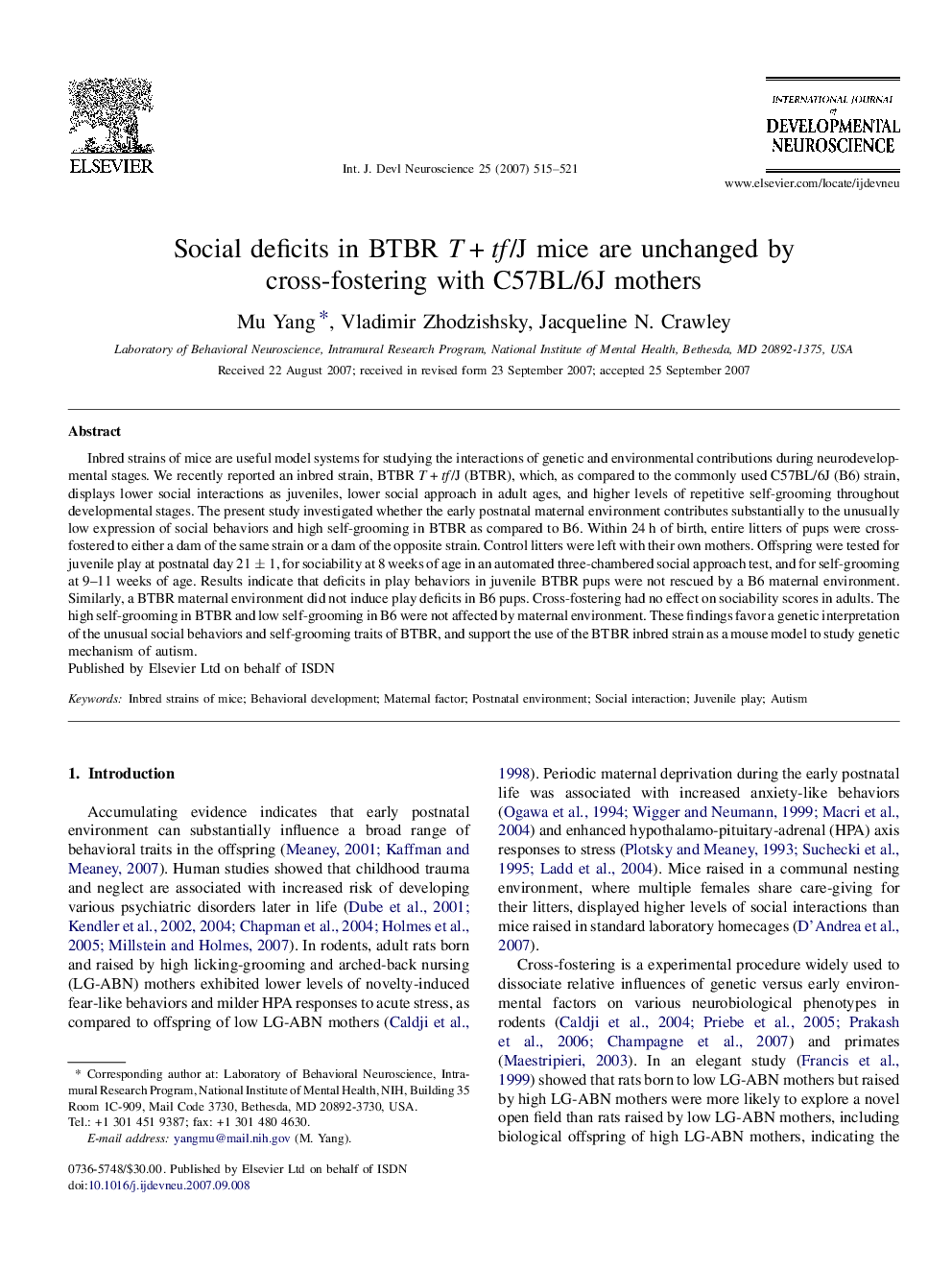| Article ID | Journal | Published Year | Pages | File Type |
|---|---|---|---|---|
| 2787105 | International Journal of Developmental Neuroscience | 2007 | 7 Pages |
Inbred strains of mice are useful model systems for studying the interactions of genetic and environmental contributions during neurodevelopmental stages. We recently reported an inbred strain, BTBR T + tf/J (BTBR), which, as compared to the commonly used C57BL/6J (B6) strain, displays lower social interactions as juveniles, lower social approach in adult ages, and higher levels of repetitive self-grooming throughout developmental stages. The present study investigated whether the early postnatal maternal environment contributes substantially to the unusually low expression of social behaviors and high self-grooming in BTBR as compared to B6. Within 24 h of birth, entire litters of pups were cross-fostered to either a dam of the same strain or a dam of the opposite strain. Control litters were left with their own mothers. Offspring were tested for juvenile play at postnatal day 21 ± 1, for sociability at 8 weeks of age in an automated three-chambered social approach test, and for self-grooming at 9–11 weeks of age. Results indicate that deficits in play behaviors in juvenile BTBR pups were not rescued by a B6 maternal environment. Similarly, a BTBR maternal environment did not induce play deficits in B6 pups. Cross-fostering had no effect on sociability scores in adults. The high self-grooming in BTBR and low self-grooming in B6 were not affected by maternal environment. These findings favor a genetic interpretation of the unusual social behaviors and self-grooming traits of BTBR, and support the use of the BTBR inbred strain as a mouse model to study genetic mechanism of autism.
